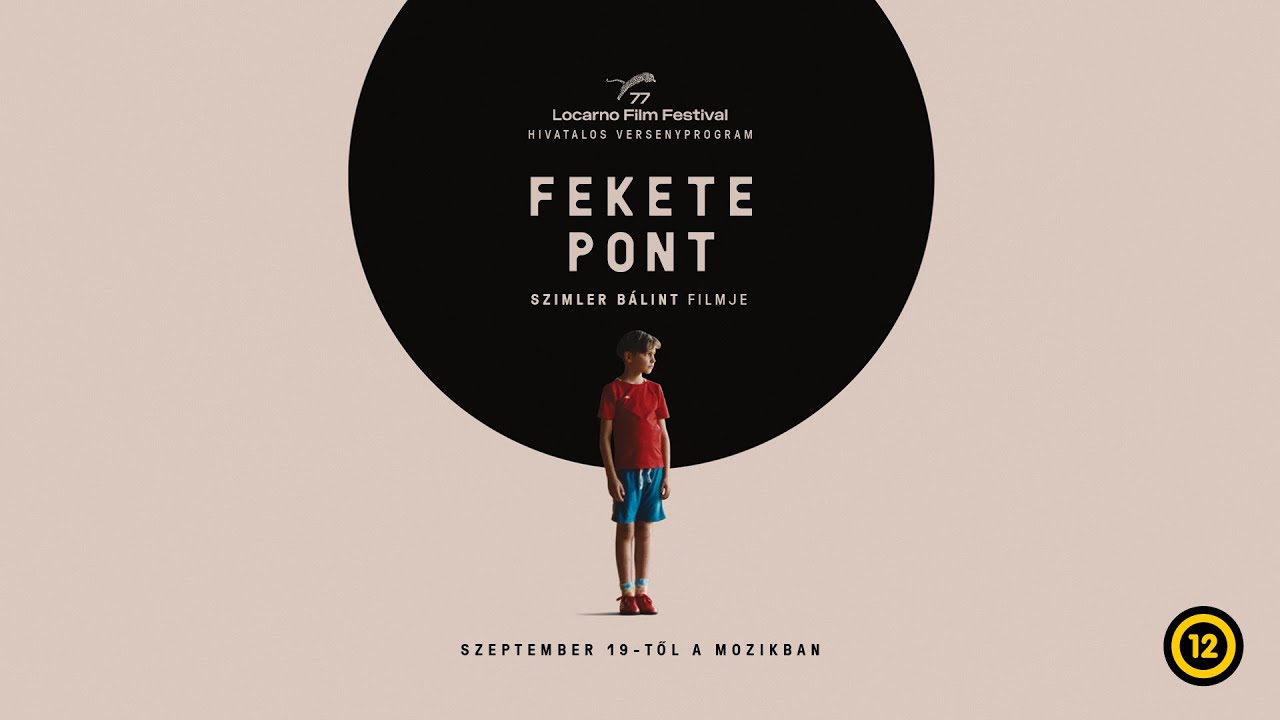A film review by a primary school teacher writing under the pen name András Juhász
Lesson Learned (Fekete Pont), Hungarian director Bálint Szimler’s 2024 film, follows ten-year-old Paul Matis (Palkó) as he returns (or comes home?) from Berlin to Hungary, and his encounters with the local school system. Paul’s mother’s job takes him to the 5th grade of a primary school in Budapest.
We follow the child from the opening ceremony of the school year, through Hungarian lessons, to his oral exam in environmental studies class. We see the life inside the staffroom, the firing of a teacher, a school ceremony, and a parent-teacher meeting. In one PE lesson, the teacher hits Paul during an individual session. With this scene, the film director throws Hungarian teachers as a whole into the ‘lake of fire’. In the film it is only the humanity of Juci, one of the teachers, that, like a thin rope, holds this community together, that keeps the community alive. Eventually, she too gives up and runs away, and thus everyone falls into a chasm.
The entire teaching community evaporates. Some leave because they hit a student, some because they stayed silent—for instance when a colleague, Mr Kornél was let go—, some because they were afraid and talked nonsense.
The film was made in collaboration with several Hungarian producers without state support. It is a so-called independent film that attracted a significant number of viewers to the cinemas. It is considered by many to be a hit.
Lesson Learned may in fact appear to be a good film at first glance because you can relate to one or other of the characters at different points. The character easiest to connect with is the protagonist: one is drawn to Paul’s vulnerability. There is no viewer who hasn’t experienced the same or similar anxiety that Paul is experiencing in the film. It’s a great creative decision by the filmmakers that Paul Matis does not convey this through a dramatic performance, but, like a Brechtian actor, alienates himself from the role a bit, and thus it is a little easier to watch him go through the trials of school.
No Title
Szimler Bálint, a Cannes-ban vetített Itt vagyok és a Balaton Method alkotója elkészítette első fikciós nagyjátékfilmjét. A Fekete pont kedvéért hazatért korábbi állandó alkotótársa, a már főleg Hollywoodban dolgozó operatőr, Rév Marcell (Eufória, Az idol, A feleségem története). Ájuldozó gyerekek és végeláthatatlan beszédek az ünnepélyes tanévnyitón. Finomfőzelék és hipós felmosóvíz jellegzetes szaga a menzán.
Then there is the attentive substitute class master, Juci (played by Anna Mészöly), a character worthy of praise in the film; she tries to teach in an interesting and captivating way, and to continually motivate her students. Her skilful grasp of situations and her advocacy for the pupils earn her the appreciation of the children in the film and of the audience in the theatre alike. She is an unequivocally positive character, almost a hero in her own right. She is also played by an excellent actor. It would be good to have more personalities like her in schools: it would alleviate some of the anxiety of the students and make it easier for them to get through their daily tasks.
But there are serious issues with the film that takes place entirely in a school setting. The portrayal of the school environment is distorted and, in many cases, borders on being disingenuous. Everyone in the teaching staff, except the class master, is insensitive, Prussian-style, at times even crude—simply put, a bad teacher due for dismissal, such as the PE teacher who hit a student. Their talents only go as far as delivering and quizzing the content prescribed by the curriculum framework. They impose ruthless discipline and kill student creativity with their restrictive presence.
Dear filmmakers! This is a bad, one-dimensional portrayal of educators. In an actual body of teachers, there are people like the class master, people who agree with him, not just colleagues who insist on discipline and give black marks to the students.
‘Dear filmmakers! This is a bad, schematic portrayal of teachers’
What we see in the PTA meeting is a mockery of and a show of contempt for the parents. In reality, it is not the lecturing of each other and the showing-off of material superiority that is typical in these meetings, but the exact opposite. The tactful help of one’s child’s fellow classmate. Help without showing off, help without pushing your person forward. This can be seen in every parent-teacher meeting that deals with budgetary questions. What we see on the screen is a non-existent situation. This is not a phenomenon characteristic of our schools. Artistically, it is a misleading portrayal. And that’s where the film starts to fall apart.
Ad the story progresses, we get further and further away from the realities of the school system in Hungary and we head to the narrative that the filmmakers are trying to push. We see an incomprehensible production of a school play, and the school district’s laugh-out-loud grotesque bid for the replacement of a window that had fallen out. The cutting and sawing of the tree in the final scene is the lowest point.
If a work of art does not reach a sufficient level in its artistry, we start looking at the reality conveyed by it. But what we see there, the interpretation of reality, is not much better either. The director suggests throughout that this is the actual state of affairs; what we see, what you see on screen is reality. This is our public education system. And never mind the setting, the inconsistent set design (once we are in a school in a housing estate, then suddenly in the corridors of an inner-city school) the impossible physical atrocities committed by the gym teacher, or the implausibility of the principal’s speech. The point is to allow the filmmakers to voice their scathing opinions of society, of their own audience. The director gives black marks to the teachers, the parents, and even the students themselves.
And we are giving the director a black mark on his project.
Related articles:








